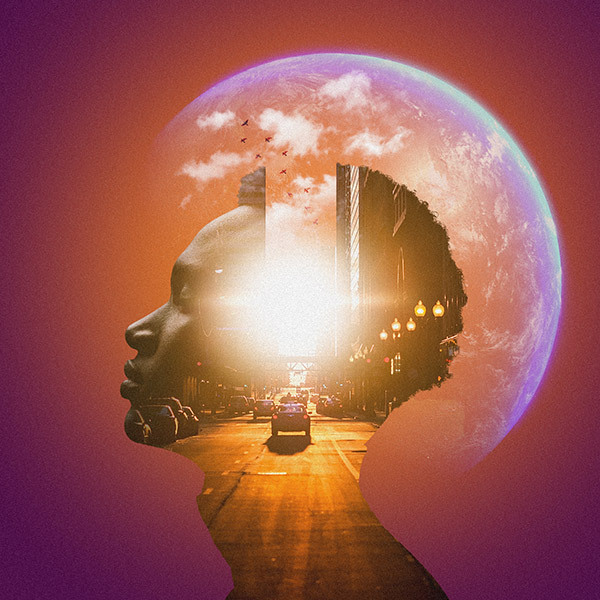
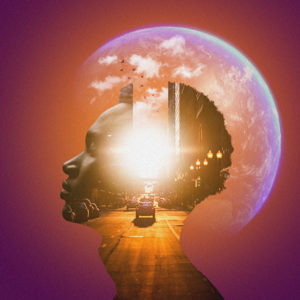 [rating=3] The audience at the Lyric Opera was audibly wowed by the vision and technical mastery on display at the opening of Proximity. A reaction, no doubt, to the projections designed by Jason H. Thompson and Kaitlyn Pietras that dazzled throughout the medley of three original operas directed and curated by Yuval Sharon, but perhaps also indicative that the company had succeeded in its goal of drawing in new people. Conductor Kazem Abdullah, who guided the orchestra through three very different composers’ styles that night, was far from the only talent making his Lyric debut at one of the boldest experiments seen at that house in recent memory. One play about cyclical violence in Chicago’s underserved neighborhoods, one much more abstract about loneliness and alienation, and one pure symbolist about the menace of extinction weaved into each other on a set made of light.
[rating=3] The audience at the Lyric Opera was audibly wowed by the vision and technical mastery on display at the opening of Proximity. A reaction, no doubt, to the projections designed by Jason H. Thompson and Kaitlyn Pietras that dazzled throughout the medley of three original operas directed and curated by Yuval Sharon, but perhaps also indicative that the company had succeeded in its goal of drawing in new people. Conductor Kazem Abdullah, who guided the orchestra through three very different composers’ styles that night, was far from the only talent making his Lyric debut at one of the boldest experiments seen at that house in recent memory. One play about cyclical violence in Chicago’s underserved neighborhoods, one much more abstract about loneliness and alienation, and one pure symbolist about the menace of extinction weaved into each other on a set made of light.
Four Portraits, composed by Caroline Shaw with Jocelyn Clarke as a co-librettist, follows a couple whose relationship is in such dire straits even they are uncertain if one or both of them are already dead. A (John Holiday), and B (Lucia Lucas), still communicate through fragmentary video messages and texts the first time they appear, although mostly to say they’re going to have to do some serious talking…later. B receives a few of these messages while on the train, surrounded by people who are equally closed off and are as shadowy as the surrounding tunnel. Later, while driving her car, she realizes that the helpful, calm, and agreeable voice of her map app is about the friendliest contact she has. An interesting feature of these vignettes is that Holiday is a countertenor and Lucas is a baritone, often creating confusion about which of them is the one singing. Shaw’s music starts off as atonal and minimalist, but subtly blends into harmony, with many striking juxtapositions, including underscoring the countertenor with timpani. Neon lighting gradually gives way to the forests that are ironically absent from the city streets named in their honor, but the forest is clearly no better a place for humans to feel at the center of their world than the urban jungle.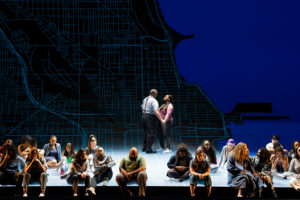
The themes of loneliness only imperfectly assuaged by technology have an obvious pandemic resonance in Four Portraits, but The Walkers is much more specific to Chicago. Librettist Anna Deavere Smith has long devised plays out of interviews she conducts with people in areas of urban conflict (she was nominated for the Pulitzer and Tony for such shows in the early nineties). But according to her author’s note, the pandemic limited her ability to conduct interviews and made her more reliant on Arne Duncan to provide her with connections. The Walkers, which has a score by Daniel Bernard Roumain, chronicles the lives of the people who are at the center of a neighborhood ruled by vigilantism. Boomer gangsters lament that violence has become less noble since the sixties, and a preacher (Gordon Hawkins) waves his silver cross at the youths while crying “I have status! I have status!” Duncan, played by Jeff Parker, condescends to directly lecture the audience with the history of the Folks and Peoples Nations and the Al Caponian justifications they give for themselves, and I can’t figure out whose benefit that was for. But once we get past that, The Walkers does contain the delightful spectacle of an onstage Jeep, as well as a singing actress (Kearstin Piper Brown) as a gangster streaming herself to the projector while vowing vengeance for a murder she’s been wrongly implicated in. That and soprano Whitney Morrison as grieving mother Yasmine Miller, whose baby was gunned down in their car as she drove to the laundromat but who is also expecting a second child, are two deeply stirring moments, and times when Smith’s poetry allows human passion to shine through everything else.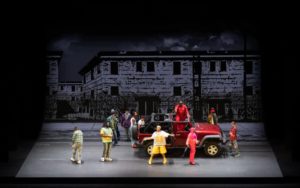
One of the recurring images throughout The Walkers is an overhead shot of people milling about with distorted proportions, in a clear reference to The Bean. The otherworldly imagery reaches its furthest extent in Night, a rhapsode with music by John Luther Adams set to a dense poem by the late John Haines. In it, a Sybil (Zoie Reams, with Katherine DeYoung filling in the night I attended), drifts through outer space, meditating on how much more peaceful this natural world feels than the messier one with all the conflicts of life. This segment features its main performer descending from the ceiling on wires and singing while floating—an amazing feat, and one that drew amazed gasps from the audience. Yuval Sharon clearly has a talent for presenting things in ways people have never seen before, even when he’s working inside of an opera house where that’s expected instead of in a parking garage or a train station. Often, opera productions are so high-budget that companies have very little tolerance for risk, which includes anything that might make audiences unsure of how they felt. I do quibble that The Walkers wasn’t served by its obligation to be hyper-local so the other two works could be broader even when their subjects were just as salient to Chicago’s cyclical violence. But trusting audiences to draw connections for themselves isn’t a bad thing, and neither is drawing in people who are open to being amazed.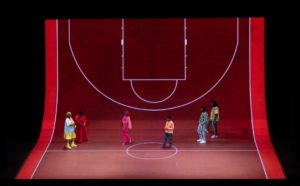
Proximity will continue at the Lyric Opera House, 20 N Upper Wacker Drive, Chicago, thru April 8, with the following showtimes: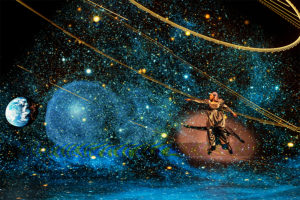
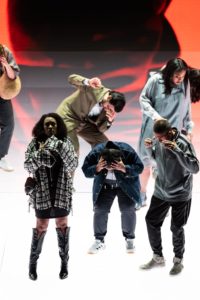
April 5 2:00 pm
April 8 7:30 pm
Running time is two hours and fifteen minutes with one intermission.
Performances are in English with supertitles.
Ticket prices start at $40. The Lyric offers parking deals with Poetry Garage at 201 W Madison St. if inquired about in advance. To order, visit LyricOpera.org or call 321-827-5600.
To see what others are saying, visit www.theatreinchicago.com, go to Review Round-Up and click “Proximity.”



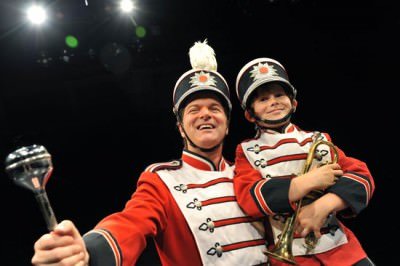
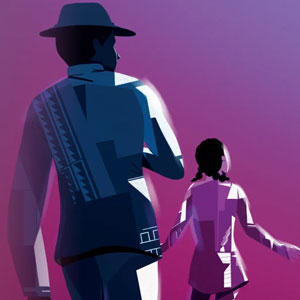
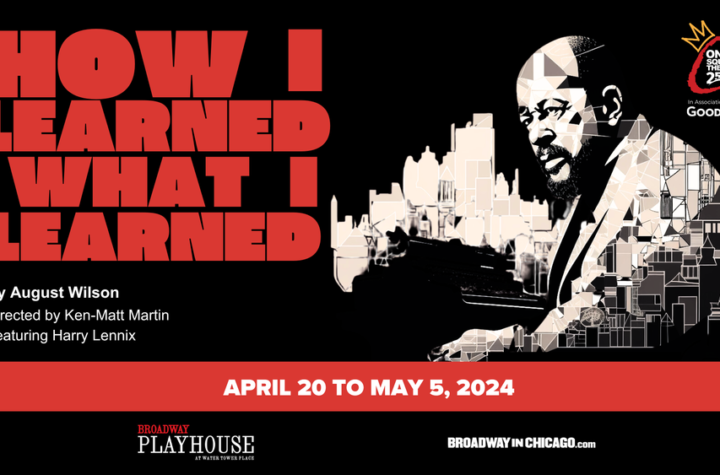
More Stories
“Barefoot in the Park”
“Joe Turner’s Come and Gone”
“How I Learned What I Learned” reviewed by Julia W. Rath